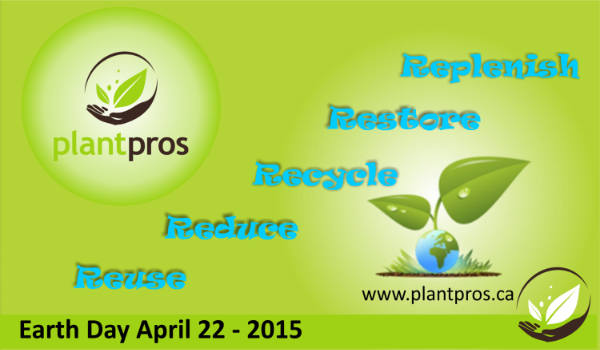6 Questions You Must Ask When Looking for a Service for Your Office Plants
/So, you've been asked by your boss to find a vendor to provide care for your office plants.
What are you thinking? … complicated, don’t know where to start?
Relax. This article will guide you through the important things to look for when beginning a search for an indoor plant service.
We recently met with a potentially new client in a Toronto area corporate office who was looking for a company to provide plant maintenance for her office. She shared her concerns about going through the process of finding the right service. We thought this would be a great idea for a post.
But before you start banging out google searches, it’s important to figure out what you want from your indoor plant service. Although your plants may look sad; or you're frustrated with your current supplier; or you’re excited about some shiny, new plants and you're in a hurry, … slow down.
Take a few moments to get some clarity as to what your current problems are, what you would like to be different and what areas of concern are important to you when dealing with a service.
When you go into a vendor consultation armed with an understanding of what you want, what you don’t want and what you may want in the future, you are better equipped to compare services. You may not have all the answers--yet, but having an idea will help potential vendors educate and guide you with a strong focus on your wants and needs.
To help you navigate this process, we've put together a list of six key concerns that you should focus on during your search for an office plant company.
1. Are They Passionate?
I know this says nothing about their experience or technical skills but …
You know how you can meet someone who exudes positive energy and a passion for what they do? I love those people. And it’s easy to tell who they are.
When in their presence, you feel like they really care and want to do whatever they can to help you. They make you feel important, energized and excited about the possibilities.
I've been in hundreds and hundreds of companies over the years and I can tell you that the culture (or personality) of a company is built from the top down. If the CEO or top management gives me the warm and fuzzies, so does the rest of the company.
You can usually tell after the first couple of interactions with a potential vendor what their purpose and company culture might be. This is also a good indication of how they treat their people and their passion for making their staff excel in how they serve their customers.
If you get a warm, welcome and passionate vibe from the boss, it’s more likely that their plant service technicians, salesperson and install crew will be the same.
2. Expertise & Guidance: Are They Good Listeners?
This question follows number one above, because a good listener is a compassionate, empathetic leader.
Listening – I mean really listening is an art. And it’s hard work. That’s probably why so many people are bad at it.
I once had a car salesman go on and on about the features and potential benefits of a car long after I told him I wasn't interested. He refused to listen to any of my needs or concerns and proceeded to tell me what I should want instead. Because he was the expert ...
I left the dealership frustrated and angry and eventually purchased from someone else.
You have needs, wants and desires that are unique to your business. And your business is unique in its culture and operation and cannot be stuffed into a one-size-fits-all solution.
As service providers, we are not here to tell you what we think you want, but to provide you with what you need.
Part of our expertise as indoor plant specialists, is taking our knowledge and pairing it with your unique situation. Vendors are here to listen to your frustrations and concerns; guide and educate you through the process and come up with solutions that match your individual situation. A service provider should be able to mold their unique expertise into a custom solution that will best fit your needs, your company and your budget.
3. What Qualifies Them as Professionals?
So, now you've figured out whether you like them or not. But do they have the skills to deliver?
I've often asked this common question of vendors or even local practitioners like a chiropractor: “How long have you been doing this?” Although important, the answer to this question does not necessarily mean they have the proper skills and experience to do the job.
Proper training for both owners and plant technicians are important for a number of reasons:
- Practical training and ongoing education are vital in keeping plant care technicians current.
- They should be well versed in the latest means and methods for plant selection; pest control; material selection; proper planting and installation; pest and disease control and safety.
- The study of plant biology enables technicians to foresee and handle problems before they become a disaster.
- Well prepared technicians are more confident and equipped to handle customer concerns in a timely and efficient fashion.
- Belonging to business trades and associations, requiring on-going qualification and certification, displays a commitment to excellence.
4. Are They a Good Fit For Your Organization?
Part of the required skill set of a plant service company must be customer service. This is a bit obvious, but not really when you consider the gross lack of quality, customer service these days.
Customer service has many parts to it:
smile; care; provide help; assist; be courteous; solve problems; act with kindness and compassion; go-the-extra-mile … you get it.
Any company that has not trained their people in the art and science and ongoing excellence in customer service is not worth their weight in gold. (Sorry about the cliche).
Customer service between a company and their vendors is a given. But when onsite, aren't service providers really an extension of your business? Don’t they hold the same responsibilities as you and your staff in serving your customers with a friendly smile, professionalism and a courteous response?
As business partners, your vendors are an integral part of your brand and operation especially if they will be seen in high traffic areas such as malls, lobbies, and client meeting areas of your workplace.
Service technicians are often the first person a customer or tenant may see when entering a building. If the service professional is rude, distant or disrespectful, the event becomes a negative perception of your operation. Nobody wants that.
5. What Value Will They Provide?
Value is an essential part of a winning service package. People have written books on providing excellent value to customers. Although value is a huge topic, it’s not always easy to grasp from a customer’s point of view.
When you sign a service contract, you exchange funds with your provider and begin to receive the service on a regularly scheduled basis.
So what exactly do you get for your money?
Let’s have a look at two common components of a value-added plant service.
A. Price: Basing your final decision on price alone could be a costly mistake.
I’m not saying that shopping on price isn't a good idea. No one wants to be overcharged. However, the right service provider will give a fair price based on quality product and excellent value.
“You get what you pay for” is a valid truism here.
First, if you’re paying a low price for your plant maintenance services but your plants look unhealthy and are not being replaced, you are not receiving good value.
Some maintenance technicians are financially penalized for requesting replacements. While this may seem unfair, some companies compete on a lower price scheme and can’t afford to guarantee their service.
Paying a fair price insures that your vendor allows for sufficient time to be spent servicing your account and that the technician is paid accordingly. No one can do all that is required to care for your plants if they’re not given the time.
The next thing to consider is the quality of the actual product you will purchase. The plants.
The right plants for your needs will likely not be the lowest priced. Offices and interiors have lower light levels and dryer air (low humidity). Most tropical plants are grown in higher light and humidity. This includes the plants you would find at your big box stores and less knowledgeable florists and landscapers. They are usually grown in higher light conditions and are not properly acclimated to come into darker interiors.
What happens when you bring these lush, high-light plants into a darker dry indoor space?
They quickly decline and become stressed. Leaves turn yellow and drop and the plant, in its weakened state, is prone to insects and disease and, sadly, an untimely death.
These plants are considerably less expensive because they are grown and shipped in one third of the time that is required for an acclimated (grown slowly and shaded), interiorscape specific plant.
B. Empowerment of Employees
Your closest relationship with your new vendor will be with your regular service person who cares for your plants.
Does the service provider empower their technicians to make commonsensical on-site decisions? Are they trained in solving problems and dealing with customer care issues? Are they encouraged to solve problems in the moment rather than having the customer wait for a manager to show up?
The plant maintenance technician is there to service you and your plants. Empowerment and communication provide added value allowing you to have peace of mind.
When companies give their people the freedom and the power to make decisions, they ensure customer satisfaction.
It’s a value you can’t put a price on.
6. Do They Have Proper Insurance Coverage?
Don’t wait ‘till it’s too late!
Okay, this one’s simple. Although it is rare in this industry, accidents happen. Before you get into the final stages of your vendor search, make sure your potential prospects are properly insured to cover any mishaps that may occur. Liability insurance and WSIB coverage will give you peace of mind.
Compliance Management Solutions are a rising trend that takes the burden off of your company when searching for contract professionals. Companies like Contractor Check and Comply Works reduce the risk for companies searching for vendors through compliance with insurance and safety qualifications.
Even if your company doesn't use one of these services, you will see those contractors who have valid certificates on their website are prequalified to serve you.
Wrap It Up!
Now that you have a general idea of what to look for you can begin your research. As you work through your search and visit different plant services' company websites, you can continue to refine your ideas about what would be a good fit for you and your company.
Don't forget. This is about the best fit for growing an ongoing, mutually beneficial vendor relationship that adds value to your company's ultimate vision.
Good Luck!
If you have any questions, we'd love to help. You can reach out to us on any of our social media platforms or email or call.
By Janet Stone & Carol Simpson
Owners Plantpros Inc.
info@plantpros.ca
289.643.1616











